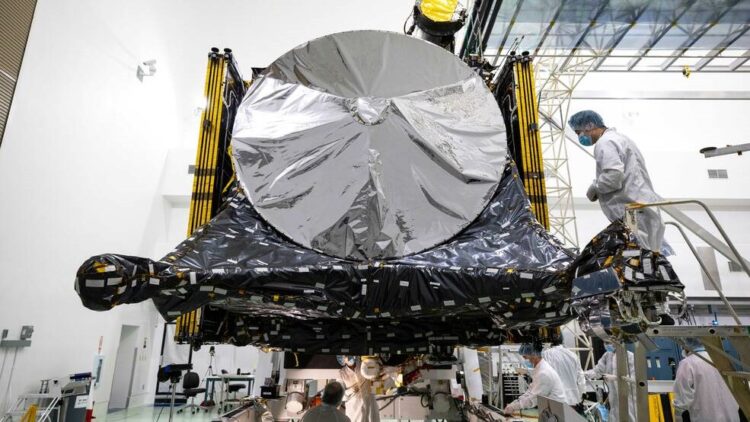Washington: NASA has announced that its Psyche mission, aiming to explore a metal-rich asteroid, is on track for liftoff in October.
The Psyche mission is a journey to a unique metal-rich asteroid of the same name, orbiting the Sun between Mars and Jupiter.
The probe is set to launch atop a SpaceX Falcon Heavy from NASA’s Kennedy Space Center’s Launch Complex 39A in Florida at 10.38 a.m. EDT on October 5.
The mission may help scientists understand more about how planets form.
The spacecraft’s solar arrays are folded like an envelope into their stowed position. Xenon gas — fuel for the journey to the asteroid belt — is loaded. All four thrusters have passed their final tests. Engineers have confirmed the massive high-gain antenna is set to transmit data. The software is tested and ready.
The science instruments — a multispectral imager, magnetometer, and gamma-ray and neutron spectrometer — that will investigate the asteroid Psyche are also poised for action, the agency said.
“These missions take so many people and so much meticulous, rigorous, personally driven work,” said Lindy Elkins-Tanton, principal investigator for Psyche at Arizona State University, in a statement.
“I am ready to be ecstatic. We all are, but we are not ecstatic yet. Let’s launch and establish communications — then we can scream, jump, and hug each other!”
Within two weeks, technicians will begin encapsulating the spacecraft in its payload fairing — the cone at the top of the rocket — and the spacecraft will move to SpaceX facilities at Kennedy Center.
After escaping Earth’s gravity, Psyche will use solar electric propulsion to accomplish its six-year journey to the asteroid. The efficient propulsion system works by accelerating and expelling charged atoms, or ions, of the neutral gas xenon — creating a thrust that gently propels the spacecraft with a force akin to what you’d feel holding a single AA battery in your hand.
Technicians recently loaded 1,085 kilograms of xenon onto the spacecraft over the course of about two weeks.
Measuring roughly 279 kilometres at its widest point, the asteroid Psyche presents a unique opportunity to explore a metal-rich body that may be part of a core of a planetesimal, the building block of an early planet.
Once the spacecraft reaches Psyche in the main asteroid belt between Mars and Jupiter, it will spend about 26 months orbiting the asteroid, gathering images and other data that will tell scientists more about its history and what it is made of.
(IANS)
















